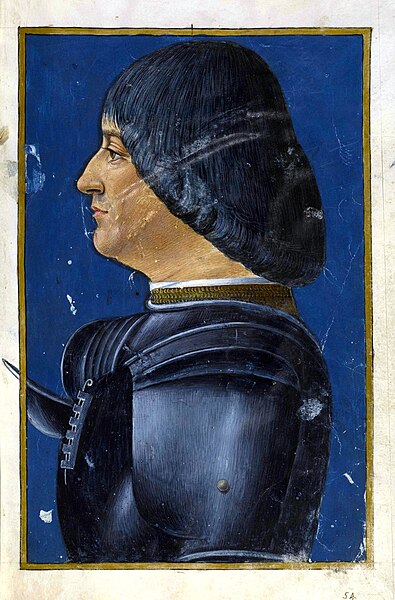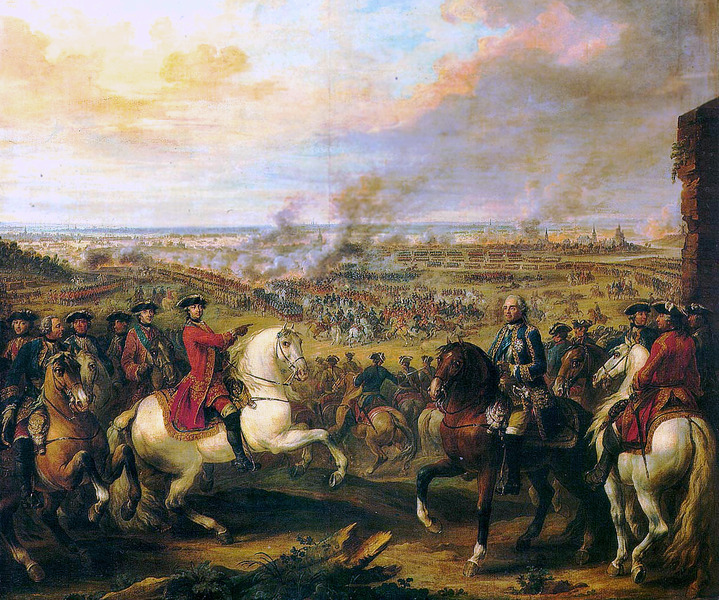“Significant Moments of April 10th” delves into notable historical events that mark this date, spanning from royal successions and literary masterpieces to scientific breakthroughs and tragic incidents.
This concise overview captures moments like the establishment of copyright law, the unveiling of the Terracotta Army, and the catastrophic sinking of the USS Thresher, among others.
Each event not only tells a story of its time but also contributes to the broader narrative of human progress, creativity, and resilience.
Join us for a succinct exploration of these pivotal events that have shaped history and continue to influence our present.
April 10th Events in History
879 – Louis III becomes King of the Western Franks, a significant event in the Carolingian dynasty’s history, marking changes in medieval European rule
Louis III’s accession to the throne marks an important moment in the Carolingian dynasty’s history, which ruled over much of Western Europe from the 8th to the 10th centuries.
The Western Frankish realm, comprising what is now France, was part of the broader division of the Carolingian Empire, which occurred due to the Treaty of Verdun in 843.
Also Read: April 9 – On this Day in History
Louis III’s reign is noted for his military successes against Viking invasions, which were a significant threat during this period. His rule, though short-lived due to his early death in 882, was marked by efforts to consolidate and protect his kingdom from external threats.
1407 – The lama Deshin Shekpa visits the Ming Dynasty capital at Nanjing. He is awarded the title “Great Treasure Prince of Dharma”
Deshin Shekpa, the 5th Karmapa Lama of the Karma Kagyu school of Tibetan Buddhism, was invited to the Ming Dynasty capital Nanjing by the Yongle Emperor. This event is significant for the recognition and respect afforded to Tibetan Buddhism by the Chinese imperial court.
Also Read: April 11th Events in History
The Yongle Emperor awarded Deshin Shekpa the title “Great Treasure Prince of Dharma,” highlighting the emperor’s interest in Buddhism and the diplomatic ties established between Tibet and the Ming Dynasty. This visit exemplifies the historical cultural and religious exchanges between Tibet and China.

1500 – Ludovico Sforza is captured by Swiss troops at Novara and handed over to the French, marking a significant moment in the Italian Wars
Ludovico Sforza, also known as Ludovico il Moro, was the Duke of Milan and a member of the Sforza family, which was a ruling family in Renaissance Italy.
His capture by Swiss troops at Novara, and subsequent handover to the French, was a significant event in the Italian Wars, a series of conflicts involving most of the major states of Western Europe, including France, Spain, the Holy Roman Empire, England, and various Italian states.
This period marked the struggle for dominance in Italy, primarily between French and Spanish forces, influencing the political landscape of Italy and Europe at large.
1606 – The Charter of the Virginia Company of London is established by royal charter by James I of England with the purpose of establishing colonial settlements in North America
The Charter of the Virginia Company of London, established by King James I of England, was a pivotal moment in the colonization of North America.
This charter granted the company the right to establish settlements in the New World, specifically in what would become the colony of Virginia.
It laid the groundwork for the English colonization of the Americas, encouraging investment in colonial ventures and promising settlers the same rights as Englishmen, which became a foundational principle for American democracy and legal system.
1710 – The Statute of Anne receives the royal assent, marking the beginning of modern copyright law by giving authors rights exclusively to their works
The Statute of Anne, enacted in 1710, is recognized as the world’s first copyright law. It came into effect in 1711, granting authors the exclusive right to print their works for a period of fourteen years, with the possibility of renewal for another fourteen years.
This statute marked the beginning of modern copyright law by transitioning from a system where rights to print books were granted to printers and booksellers, to one that recognized the intellectual property rights of authors.
The law laid the foundational principles of copyright that have evolved over the centuries but remain integral to protecting the rights of creators and authors globally.
1741 – War of the Austrian Succession: Prussia gains control of Silesia at the Battle of Mollwitz
The Battle of Mollwitz was one of the first major battles in the War of the Austrian Succession (1740-1748), a conflict that involved most of the powers of Europe over the question of Maria Theresa’s succession to the realms of the House of Habsburg.
Prussia, led by King Frederick II (Frederick the Great), sought to seize Silesia from Austrian control, aiming to expand its territory and power.
The victory at Mollwitz was significant because it established Prussia’s military reputation in Europe and demonstrated Frederick the Great’s tactical genius. It marked the beginning of Prussia’s rise as a major European power and the start of a long-standing rivalry with Austria.

1815 – The Mount Tambora volcano begins a three-month-long eruption, culminating in a catastrophic explosive event that affects global climate
This eruption is one of the most powerful and destructive in recorded history, occurring on the island of Sumbawa in present-day Indonesia.
The climax of the eruption in April led to the deaths of tens of thousands of people in the immediate area due to pyroclastic flows and the subsequent starvation and disease in the wider region.
Globally, the eruption had far-reaching effects, including what is known as the “Year Without a Summer” in 1816, due to the volcanic ash in the atmosphere reducing global temperatures. This caused widespread crop failures and famine across the Northern Hemisphere.
1858 – After the original Big Ben, a 14.5 tonne bell for the Palace of Westminster, cracks during testing, it is recast into the current 13.76 tonnes bell
The original bell for the Palace of Westminster, known as Big Ben, cracked under the striker’s weight during testing. The bell had been cast at the Whitechapel Bell Foundry and weighed over 14 tons. Following the crack, the bell was recast at the same foundry to a slightly lighter weight of 13.76 tons.
The recast bell was then successfully installed in the clock tower, where it has become one of London’s most iconic landmarks. The name Big Ben originally referred to the bell but has also become associated with the clock and the tower itself (renamed Elizabeth Tower in 2012).
1864 – Archduke Maximilian of Habsburg is elected emperor of Mexico during the French intervention in Mexico
This event is part of the French intervention in Mexico, where France, under Napoleon III, sought to establish a monarchy in Mexico as a means of extending French influence in the Americas.
Maximilian, a younger brother of the Austrian Emperor Franz Joseph I, accepted the throne of Mexico, offered to him by a group of Mexican monarchists and supported by French military force.
His reign was short-lived, as resistance from Mexican republican forces, led by President Benito Juárez, eventually overpowered the French and Maximilian’s regime. In 1867, Maximilian was captured and executed, marking the end of the Second Mexican Empire.
1866 – The American Society for the Prevention of Cruelty to Animals (ASPCA) is founded in New York City by Henry Bergh
Henry Bergh established the ASPCA in New York City, inspired by the Royal Society for the Prevention of Cruelty to Animals (RSPCA) in England. Bergh believed that animals are entitled to kind and respectful treatment at the hands of humans and must be protected under the law.
The founding of the ASPCA marked the beginning of the animal welfare movement in the United States. The organization’s mission was to provide effective means for the prevention of cruelty to animals throughout the U.S., including through legislation, education, and direct intervention.
The ASPCA played a crucial role in the development of animal welfare legislation and continues to be a leading voice in the fight against animal cruelty.
1874 – The first Arbor Day is celebrated in Nebraska, later it becomes a national holiday in the US
Arbor Day was established by J. Sterling Morton in Nebraska City, Nebraska, with the idea of encouraging individuals and groups to plant trees.
The first Arbor Day saw approximately one million trees planted in Nebraska, highlighting the importance of trees for soil conservation, to act as windbreaks to keep soil in place, for shade, and to beautify the landscape.
This initiative quickly spread to other states and countries, becoming an international day dedicated to the planting and caring for trees. The celebration of Arbor Day reflects an early recognition of environmental conservation and the critical role trees play in our ecosystem.
1912 – RMS Titanic sets sail from Southampton, England on her maiden and only voyage
The RMS Titanic, the largest passenger liner in service at the time, embarked on its maiden voyage from Southampton to New York City. Despite being deemed “virtually unsinkable,” the Titanic tragically sank in the North Atlantic Ocean after colliding with an iceberg four days into the journey, on April 14, 1912.
The disaster resulted in the loss of over 1,500 lives, making it one of the deadliest peacetime maritime disasters in history. The Titanic’s sinking led to significant changes in maritime regulations and safety practices, including the establishment of the International Convention for the Safety of Life at Sea (SOLAS) in 1914.
1925 – The Great Gatsby by F. Scott Fitzgerald is first published in New York City, by Charles Scribner’s Sons
This novel is one of the most celebrated works of American literature and F. Scott Fitzgerald’s masterpiece. Set in the Jazz Age on Long Island near New York City, the story is a critical social commentary on the American Dream, exploring themes of wealth, class, love, and disillusionment.
The novel’s depiction of the lavish lifestyles and moral decay of the era captures the complexities of the American spirit. Despite a lukewarm reception initially, “The Great Gatsby” has since become widely regarded as a seminal work of the 20th century, frequently included in the canon of American literature and taught in high schools and universities across the United States.
1938 – Édouard Daladier becomes Prime Minister of France, playing a pivotal role in the prelude to World War II
Édouard Daladier’s term as Prime Minister of France was marked by turbulent times leading up to and during the early stages of World War II.
Daladier is perhaps best known internationally for his role in the Munich Agreement of 1938, where he, along with British Prime Minister Neville Chamberlain, Italian dictator Benito Mussolini, and German Chancellor Adolf Hitler, agreed to the annexation of the Sudetenland region of Czechoslovakia to Nazi Germany in an attempt to appease Hitler and avoid war.
This policy of appeasement ultimately failed to prevent WWII. Daladier’s leadership faced criticism for underestimating the Nazi threat and failing to adequately prepare France for the coming conflict.
1959 – Akihito, future Emperor of Japan, marries Michiko
Akihito married Michiko Shoda, the first commoner to marry into the Japanese imperial family. Their marriage marked a significant departure from tradition and signaled a modernization of the imperial institution.
Akihito became the 125th Emperor of Japan in 1989, and his reign was characterized by efforts to address the legacy of Japan’s wartime past, promote peace, and bring the imperial family closer to the Japanese people.
The couple’s marriage was widely celebrated and helped foster a more open and relatable image of the imperial family. Akihito abdicated in 2019, becoming the first Japanese emperor to do so in over two centuries, citing his advanced age and declining health.
1963 – The USS Thresher, an American nuclear submarine, sinks in the Atlantic Ocean, causing the death of all 129 aboard
The USS Thresher was the first nuclear-powered submarine lost at sea, along with all 129 crew and shipyard personnel aboard, during deep-diving tests approximately 220 miles east of Boston.
This disaster highlighted the dangers of underwater naval operations and led to significant improvements in submarine design, safety, and emergency response protocols under the SUBSAFE program.
The Thresher disaster remains one of the deadliest submarine accidents in history, prompting the U.S. Navy to reevaluate and enhance the safety measures for its submarine fleet to prevent similar tragedies.
1970 – Paul McCartney announces that he leaves The Beatles for personal and professional reasons
Paul McCartney’s announcement of his departure from The Beatles effectively marked the end of the band, one of the most influential and successful groups in the history of popular music. The news came through a press release for McCartney’s solo album, in which he indicated he would no longer be working with John Lennon, George Harrison, and Ringo Starr.
This announcement followed a period of internal discord and creative differences within the group. The Beatles’ breakup was a significant cultural moment, signaling the end of an era in music history. The members went on to pursue successful solo careers, but the legacy of The Beatles continues to influence music and culture worldwide.
1972 – Tombs of Qin Shi Huang, the first Emperor of China, are discovered by farmers in Xi’an, China
The discovery of the mausoleum of Qin Shi Huang, including the Terracotta Army, near Xi’an, China, is one of the most significant archaeological finds of the 20th century.
The Terracotta Army consists of thousands of life-sized clay soldiers, horses, and chariots that were buried with the first emperor of China to protect him in the afterlife.
The site dates back to approximately 210 BC and provides valuable insights into the practices, military formations, and artistry of ancient China. The Terracotta Army has become a symbol of China’s historical richness and cultural heritage, attracting millions of visitors from around the world.
1991 – A rare tropical storm develops in the South Atlantic Ocean near Angola; the first to be documented by satellites
Tropical storms in the South Atlantic are extremely rare due to the ocean’s generally unfavorable atmospheric conditions for such developments. The 1991 storm, known as “Tropical Storm Anita,” is one of the few documented cases of a tropical storm forming in this region.
Its occurrence challenged meteorologists’ understanding of tropical cyclone formations and prompted further research into the climatic conditions that could lead to such anomalies.
The storm was a significant event for meteorological science, illustrating the complexities of Earth’s weather systems and the potential for unexpected weather phenomena.
2010 – The President of Poland, Lech Kaczyński, is among 96 killed when their airplane crashes in western Russia
The tragic plane crash near Smolensk, Russia, claimed the lives of President Lech Kaczyński, his wife, and numerous high-ranking Polish officials who were en route to commemorate the 70th anniversary of the Katyn Massacre, where thousands of Polish officers were killed by Soviet forces during World War II.
The disaster had a profound impact on Poland, leading to a period of national mourning and significantly affecting the country’s political landscape. The crash also highlighted issues of flight safety, particularly regarding VIP transport, and strained Polish-Russian relations due to controversies surrounding the investigation into the crash’s causes.
